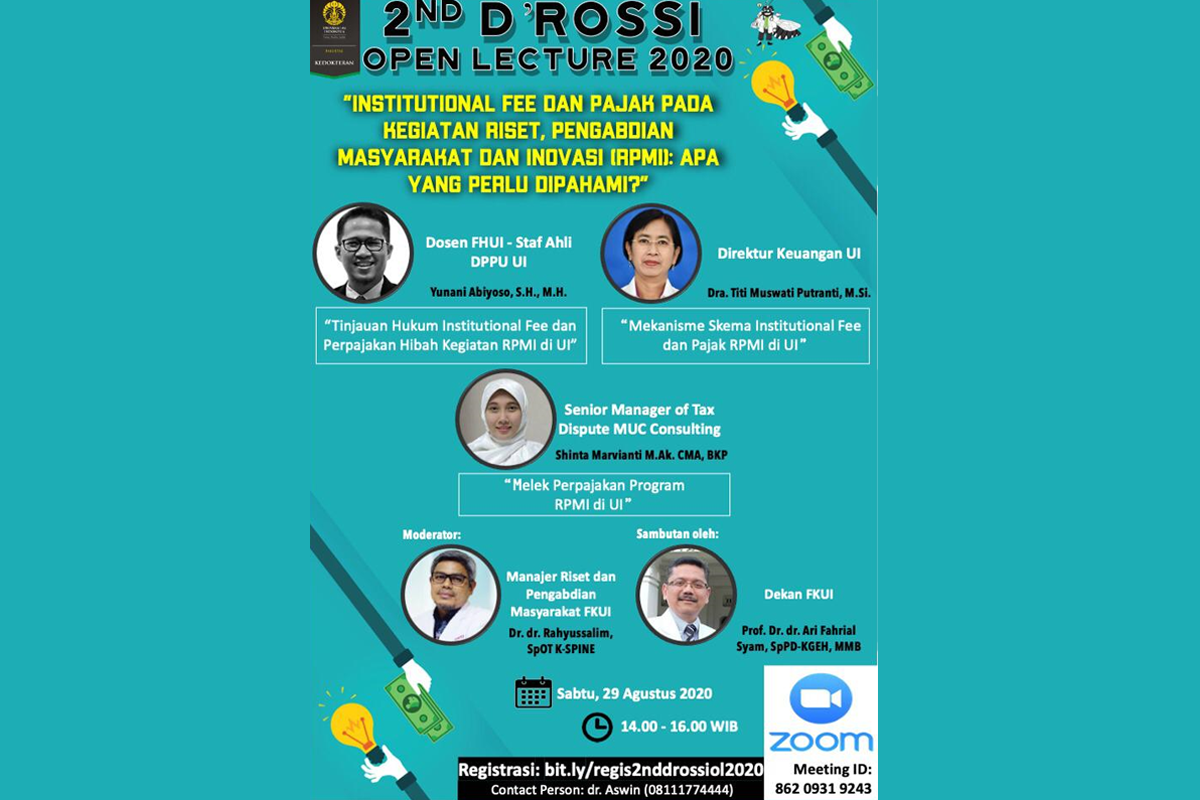Research Tax Talk with Doctors

JAKARTA. Research is often associated with social-oriented activities, because it cannot be separated from the interests of education, community service or human resource development. Especially on research conducted by institutions that are formed for non-profit purposes.
However, even though it is carried out by institutions that claim to be non-profit, such as educational institutions, there is tax aspect that often overshadows researchers when running a research project. This is because the tax will only look at transactions, not just see the parties making the transactions.
It has become a discourse between researchers, especially those without a tax background, and the government, in this case the Directorate General of Taxes (DGT).
Related to this matter, Do Research, Social Service and Innovation (D'ROSSI), Faculty of Medicine, University of Indonesia (UI), held a discussion discussing Institutional Fees and Taxes in Research, Community Service and Innovation Activities. The event was held on 29 August 2020, via ZOOM application and was attended by hundreds of researchers.
On this occasion, Shinta Marvianti, Senior Manager Tax Dispute MUC Consulting, said that tax is a compulsory contribution of society, both personal and corporate. There are four types of taxes related to research activities, the first is Income Tax Article (ITA/PPh) 21, ITA 23, ITA 4 and Value Added Tax (PPN). Each of these taxes does not apply equally to all researchers, depending on the nature of the research and who is conducting the research. For example, ITA 21, the rates and payment mechanisms will differ between researchers with the status of permanent civil servants, non-civil servants and researchers who are not employees.
"Researchers who are permanent civil servants for the fee of the research conducted are subject to final Income Tax Article 21," said Shinta.
While ITA 21 imposed on non-employees is not final and, it is considered an honorarium, commission or fee. Meanwhile, ITA 23 is charged for income received on royalties from research results.
Depending on The Research Motive
On that occasion, The Finance Director of the University of Indonesia (UI) Titi Muswanti Purwanti added, another problem that often arises is the dispute regarding tax liabilities on the income of grants received by research institutions.
According to Titi, to assess whether there is a tax liability on the income needs to be seen from several aspects. First, whether the research conducted is included in taxable services, and secondly, whether there are contraprestation that arise in the research cooperation agreement, or not.
If the research is not included in taxable services, then the income will not be subject to ITA 23. Likewise, if there is no contraprestation that occurs in the research, then the Value Added Tax (VAT) will not be payable.
What is meant by contraprestation is the reciprocity promised by the research institution to the donor. Another indicator can be seen from the use of research results, whether they are used exclusively for the benefit of the donor or in the form of ownership of Intellectual Property Rights (HAKI) for research.


